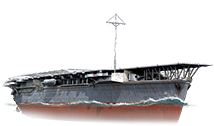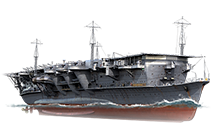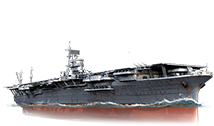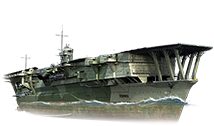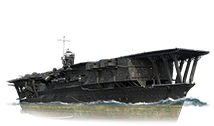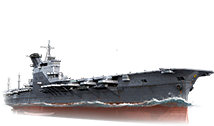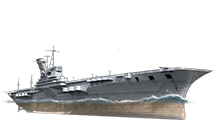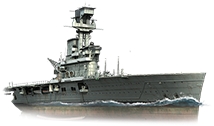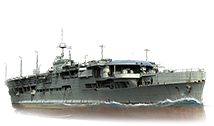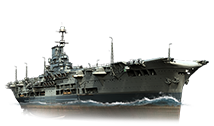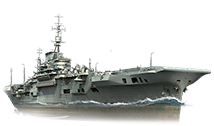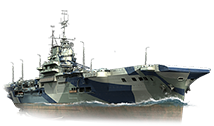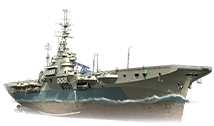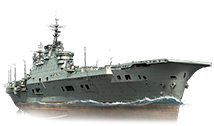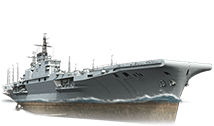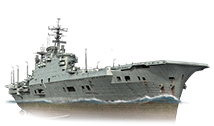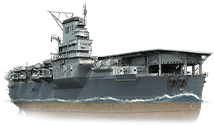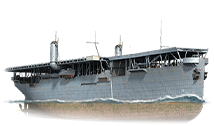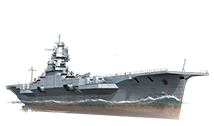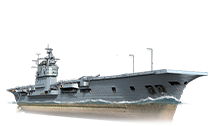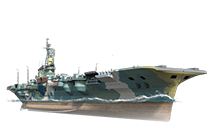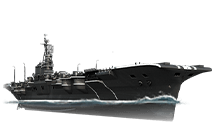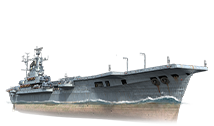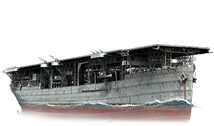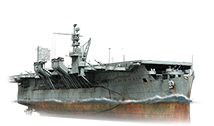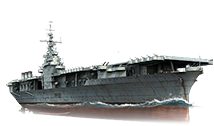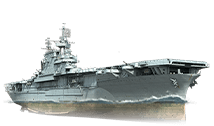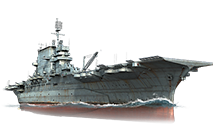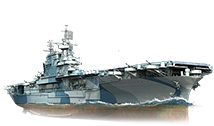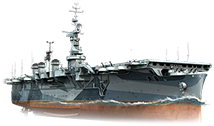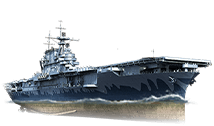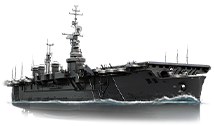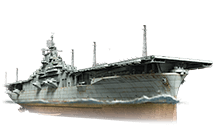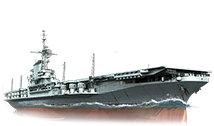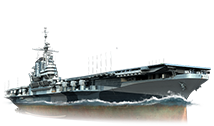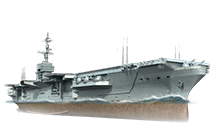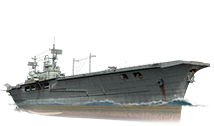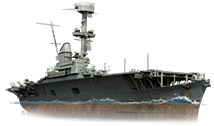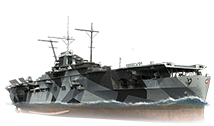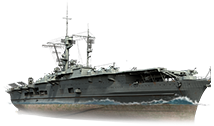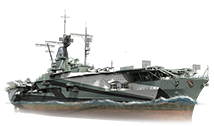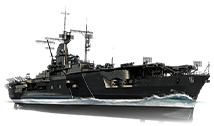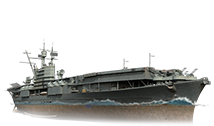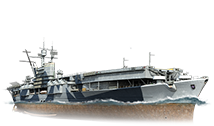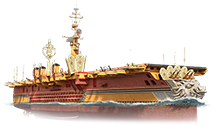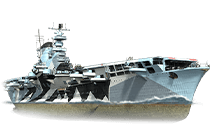Aircraft Carriers
While the first ship-launched takeoffs, and subsequently airborne attacks, were made in the early 20th century, the then-immature development of heavier-than-air aircraft prevented them from having any major influence in World War I. During the interwar years, ongoing research resulted in the development of several converted and purpose-built ships that could not only launch aircraft, but eventually recover them as well. In addition, carrier-launched aircraft (or rather, air power in general) began to have longer ranges, superior flexibility and greater precision than naval guns of any size and make. Although fierce resistance from "big gun" battleship admirals initially limited carrier assets and development, it was in World War II — amply illustrated by the battles of Taranto, Pearl Harbor, Coral Sea, Midway and Operation Ten-Go — that the aircraft carrier clearly demonstrated its overwhelmingly superior ability to project naval power and took over the reins as the flagship of a navy from battleships, a trend that continues today.
Playing an aircraft carrier is likened by many players to playing a real-time strategy game. You do not directly participate in combat, but are able to influence the flow of battle from a safe distance like no one else can, scouting, reinforcing a crumbling flank, providing additional presence to a sector that your team has committed fewer ships to, or even breaking up entire battleship formations to tip the scales in favor of your team. Do not forget to be on the lookout for sneaky destroyers or an entire formation of aircraft seeking to destroy you; it is common for carriers to group all their aircraft into an initial strike force to neutralize enemy carriers and achieve quick air superiority. All carriers hold a limited number of aircraft of various types, so careful usage and preservation is important.
Aircraft carriers start off at Tier IV with a limited complement of fighters, dive bombers and torpedo planes. Fighters intercept hostile anti-surface aircraft and protect their own from enemy fighters while torpedo planes and dive bombers take out the opposing team's surface vessels, attacking from the sides and the bow/stern of the ship respectively. Torpedo bombers, like ship-launched torpedoes, can cause flooding and tend to be more effective against larger, slower and armored ships; the faster, more accurate (most of the time at least) dive bombers fare better against smaller, unarmored targets such as destroyers and can set enemy ships on fire. All aircraft types have a manual fire option that provides an alternative (and often better) form of attack. However, they are not purely restricted to taking down specific targets; skilled carrier captains will fully utilize all 3 aircraft types in conjunction with each other to take down any unfortunate ship that crosses their path.
Although carriers have reasonable concealment, speeds and, at higher tiers, a modicum of self-defensive secondary armament, great care should be taken to maintain a good balance in the distance from the fighting; too far and the carrier will be unable to provide timely and constant aerial presence; too near and the carrier will be the priority target to be taken down as they are almost defenseless under the guns of enemy ships. At Tier VIII, carriers gain the Defensive AA Fire ability, granting them additional defense against carrier-to-carrier sniping; however, unlike cruisers, this ability only affects the carriers' smaller caliber AA guns (generally their 40mm AA guns, or the 25mm for Shokaku) and has fewer number of charges in exchange for greatly increased duration.